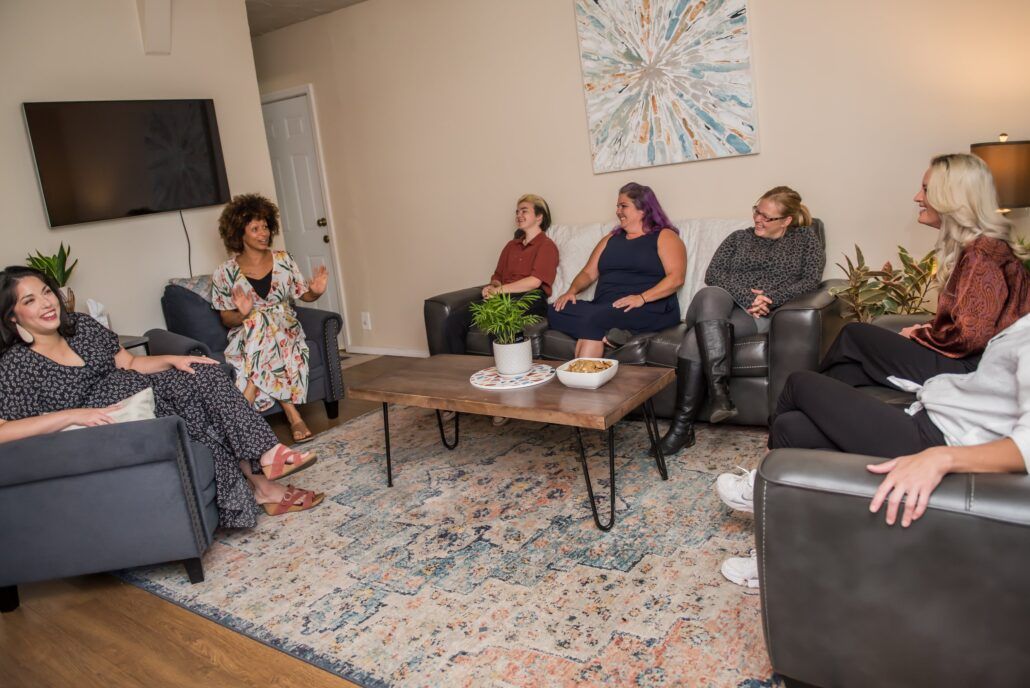NAOMI community fulfills the Surgeon General’s parting prescription
News Story by Rose Owens | FāVS News
About 95% of people struggling with addiction have experienced trauma, according to NAOMI’s Development Director Barbara Comito. And in Spokane, this connection between trauma and substance abuse hits women particularly hard. Many end up homeless and isolated, lacking the support system needed to break the cycle.
NAOMI, a Spokane faith-based nonprofit, works to fill this gap by providing women a safe space to heal from trauma and rebuild their lives through community support. In January, U.S. Surgeon General Vivek Murthy highlighted this broader crisis of community erosion in his report, “My Parting Prescription for America,” linking social isolation to various health and societal challenges.
“In different ways, people tell me they feel something is missing in their lives. For too many, this includes a gap in basic needs — food, housing, financial security, and others — which are all-too-common contributors to pain and distress,” Murthy wrote.
NAOMI reaches women whose trauma often leaves them isolated, putting into practice Murthy’s findings about the healing power of community connection.
Clint Emmett is a psychiatric mental health nurse practitioner at the University of Idaho Counseling & Mental Health Center. He agrees with Murthy’s report. When thinking of patients with depression, he would prescribe them Prozac. Prozac works on serotonin, which is a neurotransmitter that can make us feel happy.
“It can make your brain dump out as much serotonin as it wants, but if you don’t have a meaningful relationship in your life, or you don’t have friendships in your life, no amount of serotonin is going to fix that,” Emmett said.
This is where community comes in. Emmett points to the fact that oftentimes people get up in the morning and go to work or school, partially, because someone expects them to be there.

“If we have people that live their lives without anyone who notices when they’re not there. That is a very hopeless kind of way to live. … That’s why community is really important. Who’s going to notice when you’re not there?” Emmett said.
“In recent years, the field of interpersonal neurobiology has shown that relationships actually have the power to heal damage done to the brain by past trauma. Community isn’t just a good idea; it can be life-saving,” said NAOMI Executive Director Trena Garrett.
About a third of adults and half of young people experience loneliness and that social disconnection increases risks of heart disease, dementia, depression, anxiety and premature death, Murthy reported.
NAOMI is taking steps to actively promote women’s health through community. They offer one-on-one coaching where women can meet with a support specialist. This can look like having conversations or even contacting someone to help them jump their car.
“Sometimes it’s women who go to court to get a restraining order, and here you’re doing this really difficult thing, right? That takes a lot of courage to do. And you get there, and it’s pages and pages that you have to fill out for that. And it’s really overwhelming, and some women just need someone to go with them. They just need a person to be with them in that,” Comito said.
NAOMI also has community meals for women to enjoy a free meal and fellowship. Other times they put on “group,” which is interactive education on topics such as parenting, boundaries and identifying feelings.
According to NAOMI’s 2024 impact report, in 2024, they served 91 women and 90 children with 3,300 hours of relationship-based support. More than 90% of those hours took place through one-to-one connection while another 247 hours were spent in educational settings with 30 to 50 women learning interpersonal and recovery skills.
NAOMI is a complement rather than a replacement to other services such as therapy. Therapy and specific recovery services can be invaluable, but because of legal reasons they cannot be friends. This is where NAOMI can fill that gap and surround people with community and meaningful friendships.
Because of NAOMI’s approach, the organization doesn’t just offer a quick fix to people’s struggles. Instead it helps teach women how to take their next steps and offer support through it all.
Shante Williams, NAOMI’s lead support specialist, said she finds witnessing the transformative power of community at NAOMI inspiring.
“I’ve experienced and seen firsthand how creating a safe environment can empower women to not only heal from trauma but also to thrive as a person,” Williams said. “Healing happens in connection with other people, and the stories I hear every day reinforce the profound impact of providing a space where vulnerability is embraced and resilience is nurtured.”








This is the best thing I’ve read today (so far). The article describes NAOMI as “faith-based” but a visit to their website isn’t painful for a nonbeliever such as myself. That is a compliment!. Trauma, abuse, addiction, recovery, etc. are complicated things and “pray it away” approaches usually fail and are problematic for nonbelievers. Thanks for making us aware of this resource.
Thank you for this article and information share. Friendships, social connections, and community–so important to healthy living.